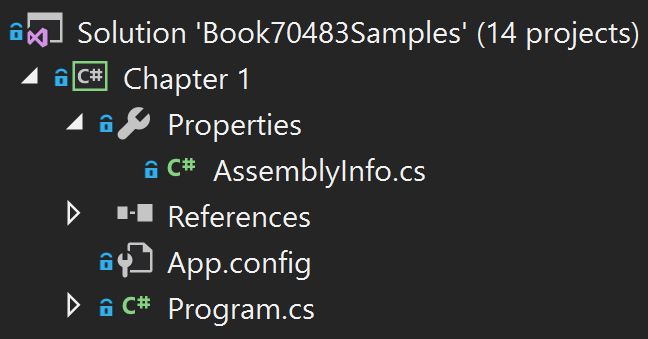Assemblies in the .NET Framework can be of two types, .exe or .dll, and are termed as the building blocks of a .NET application.
These assemblies form the basic units of an application and allow a programmer to maintain versions, security, scope of usage, and reuse. Since an assembly contains all the information required to execute your application, it provides the runtime with information about what .NET types are used and what features of runtime are required to execute the application.
When you create an application in .NET using Visual Studio, it creates source code files (.cs files), properties of an assembly (AssemblyInfo.cs):

These projects allow programmers to associate other assemblies, which, in turn, allows them to create and maintain larger projects for multiple users to work on each project. When work on individual projects is completed, these projects can be created as one assembly unit to release for the customer.
When an assembly is created, each assembly creates a manifest file that details information about the following:
- Each file that has been used in creating this assembly
- If there are any references that have been used
- The version of the assembly with a unique name
